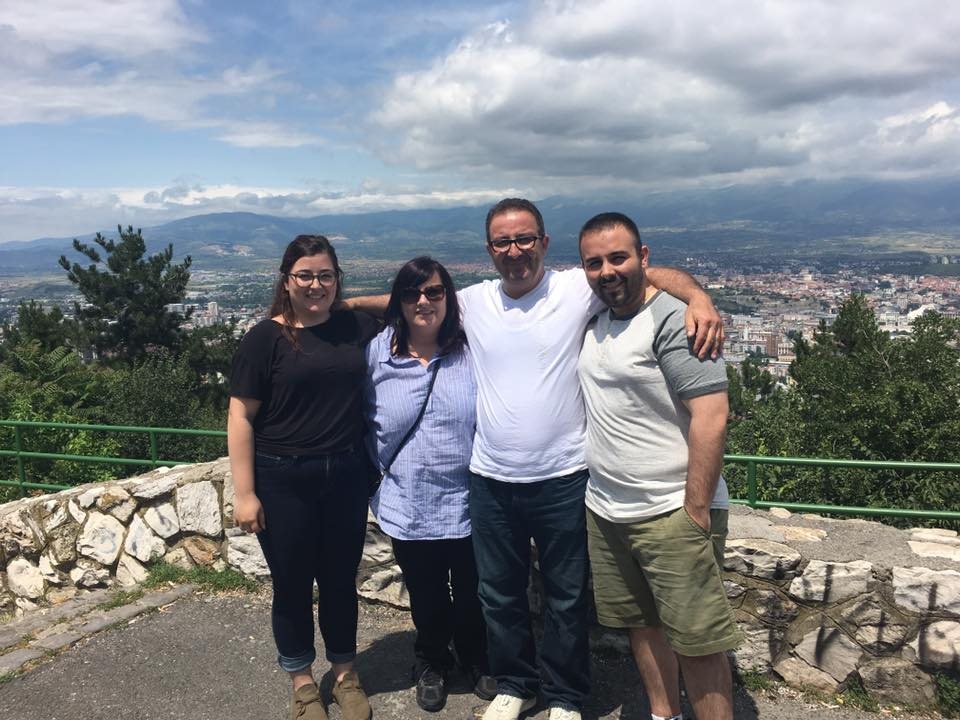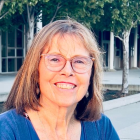Support strong Canadian climate journalism for 2025
Aleksandra Spasevski helps young people lead action on climate change.
As the sustainability engagement co-ordinator at the University of Waterloo, a member of the Intermunicipal Partnership for Active Transportation (IMPAcT) advocacy group and as a member of the Ontario College and University Sustainability Professionals (OCUSP), this 24-year-old is applying her research on how best to ensure that youth voices are heard.
Starfish Canada named her a Top 25 Environmentalists under 25 in 2021.
This piece is part of a series of profiles highlighting young people across the country who are addressing the climate crisis. These extraordinary humans give me hope. I write these stories to pay it forward.

Tell us about your work at the University of Waterloo.
My job is to encourage the 50,000 students, faculty and staff in the university community to contend with the climate justice crisis. As a university, we exist to build the capacity of students. My master’s research showed that young people engage more deeply when they are provided with opportunities and mentorship for substantive leadership in identification, design, implementation and evaluation of efforts to mitigate and adapt to climate change.
My work is focused on ensuring the sustainability approaches taken by the university let students lead.
This has multiple benefits. When students lead, others follow. Faculty and staff are likely to be supportive if the initiatives come from students. The projects are more likely to be sustained over time. Perhaps most importantly, the students gain experience in leadership they will take into future endeavours.
We have seen the numbers of students engaging in leadership double since fall 2021 when the university reopened to in-person learning, and I have every confidence that growth will continue.
One example of the wisdom of this approach is in helping the university rethink its waste management. Custodial staff, often students working part-time, are under-resourced and, especially with the pandemic, overtaxed. It is unrealistic and unjust to assume they will do the extra work that comes with more recycling. We engaged the custodians in designing and implementing solutions. Now users are expected to do their own sorting. Student research revealed this could be more effectively enabled by providing visual images as well as words of each type of waste at sorting stations. In addition, users confront the waste impact of their own consumption choices.
In another quite different example, students helped our Ontario-wide collaborative of campus sustainability offices (OCUSP) understand they needed accessible information about climate-friendly career and volunteer opportunities. Students helped build a database to showcase that information.
How does your work in the community support your work at the university?
I sit on the board of an active transportation advocacy group called TravelWise. Students and community members told us that road rage increased during the pandemic. Students helped design a program to nudge the university community to be better commuters, build a locked bike storage area and help car users understand the needs of cyclists, pedestrians and wheelchair users.

How did you get into this work?
My undergraduate degree was in environmental science and part of my research was studying the impacts of warming weather on honeybees. Since this meant feeding a lot of bees fermented honey, I killed a lot of honeybees. This broke my heart, but I felt powerless to avoid it. Science is slow to provoke change. My mental health began to decline. But a mentor of mine, Leslie Adams with whom I volunteered at a small not-for-profit Protect our Water and Environmental Resources, persuaded me I could make an impact in sustainability management.
How did the way you were raised affect where you are today?
My parents came to Canada from Macedonia. My dad loves our small Ontario town but he doesn’t like the way the Indigenous people whose land it is on were treated. He taught me to value their culture for the potential it has to connect humanity to the land. My mother taught me to see action as an antidote to eco-anxiety and climate grief.

What makes your work hard?
Everything is voluntary. There are no requirements. People already feel pushed past their limits and working on sustainability often feels like an additional burden.
What gives you hope?
My boss and my colleagues are terrific, and seeing so many young people taking leadership fills me with hope. I also take time to reconnect with nature around me. One of my favourite projects is to put QR codes linked to meditations or forest bathing exercises at quiet, natural places around campus. Taking a few minutes to connect helps me, and I like knowing it also helps others.
What would you like to say to other young people?
Just try. I might sound like I have a big job, but I haven't found my niche yet, either. Take a chance — if it doesn't work out, the worst that will happen is you will have learned that is not for you.
What would you like to say to older readers?
Take a chance on the young people in your life. Spend time with them. Let them lead knowing that they will learn a lot and you and your organization will also learn and change.






Comments